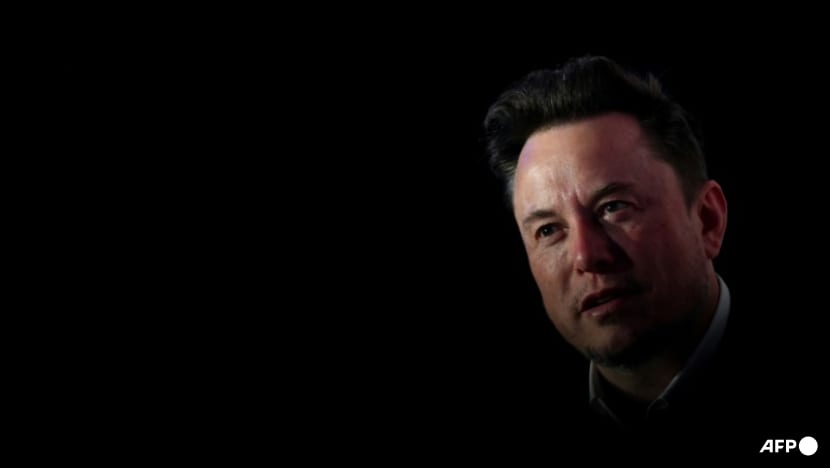Tech giants believe sweeping EU digital rules too burdensome, worry about profitability
Observers are unsure how effective the EU’s extensive new legislation will be in regulating the world’s tech giants, which would prefer little to no rules.


This audio is generated by an AI tool.
BRUSSELS: A recent public dispute between the European Commission and X owner Elon Musk has sparked concerns about the regulating body’s ability to govern social media platforms.
The commission, which is the European Union's executive arm, is trying to regulate new technology for the first time – and at a scale that has never been attempted anywhere else.
But observers are unsure how effective the EU’s extensive new legislation will be in regulating the world’s tech giants, which would prefer little to no rules.
CURBING THE POWER OF TECH GIANTS
This comes after Musk was reminded by the EU’s Internal Market Commissioner Thierry Breton that his social media platform had to comply with new laws ahead of an interview with United States presidential candidate Donald Trump on Monday (Aug 12). Musk then posted an expletive-filled meme on X in response to the warning.
An EU spokesperson said Breton's warning was not sanctioned by his superior, Commission President Ursula von der Leyen.
When approached by CNA about Musk's post, a commission official said “we don’t comment on comments”.
Over the last few years, the EU has launched three major laws aimed at curbing the power of big tech, while injecting transparency and accountability into the digital space.
The Digital Markets Act (DMA) aims to make the digital economy fairer and ensure big tech firms do not use their market dominance to quash competition.
The Digital Services Act (DSA) regulates the way platforms moderate and present content, from illegal content and disinformation, to addictive user interface design and election integrity.
The Artificial Intelligence Act hopes to mitigate the risk of the new technology, and ensure AI systems are transparent and safe.
X and other firms such as Meta and TikTok are already being investigated by the European Commission for potential breaches of these new laws, and are in negotiations with Brussels.
In the past few weeks, tech firms Apple and TikTok, prompted by the new rules, have announced changes to their platforms.
TikTok announced that it would shut down its TikTok Lite Rewards in the EU, a points system which allows users to get rewards for engaging with content.
Apple also announced it would loosen the rules to its App store after the EU said some of its practices led to unfair competition.
Related:
MORE THAN POLICING BIG TECH FIRMS
EU Commissioner for Competition Margrethe Vestager told CNA that this is more than policing big tech firms, and about regaining user trust.
“For people to embrace technology and to trust it, I think the rules that we put in place are absolutely essential, foundational, for a society where you can trust technology to serve you as a human being,” said the executive vice-president of the European Commission.
“And that I think is in everybody’s long-term interest, also for the profitability of the tech companies.”
Despite the assurances, big tech firms are still concerned about profitability and believe the EU laws are too burdensome.
Apple, Meta, TikTok and online retailer Zalando have all appealed against some of these new rules, while others such as Amazon have appealed the huge fines levied against it.
European Digital Rights, the EU’s leading digital rights group, told CNA that it is a good sign that tech giants are pushing back against the new EU obligations.
“In our experience, when tech companies are unhappy with legislation, it means the legislation works,” said Jan Penfrat, the organisation’s senior policy advisor.
“The idea of the DSA and the DMA – the European laws on platform regulation – is precisely to limit the power of these big companies, and to rein in some of the worst practices that they have had in the past and so obviously they are going to be unhappy about it.”















